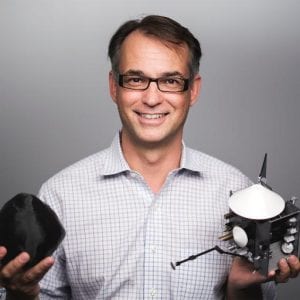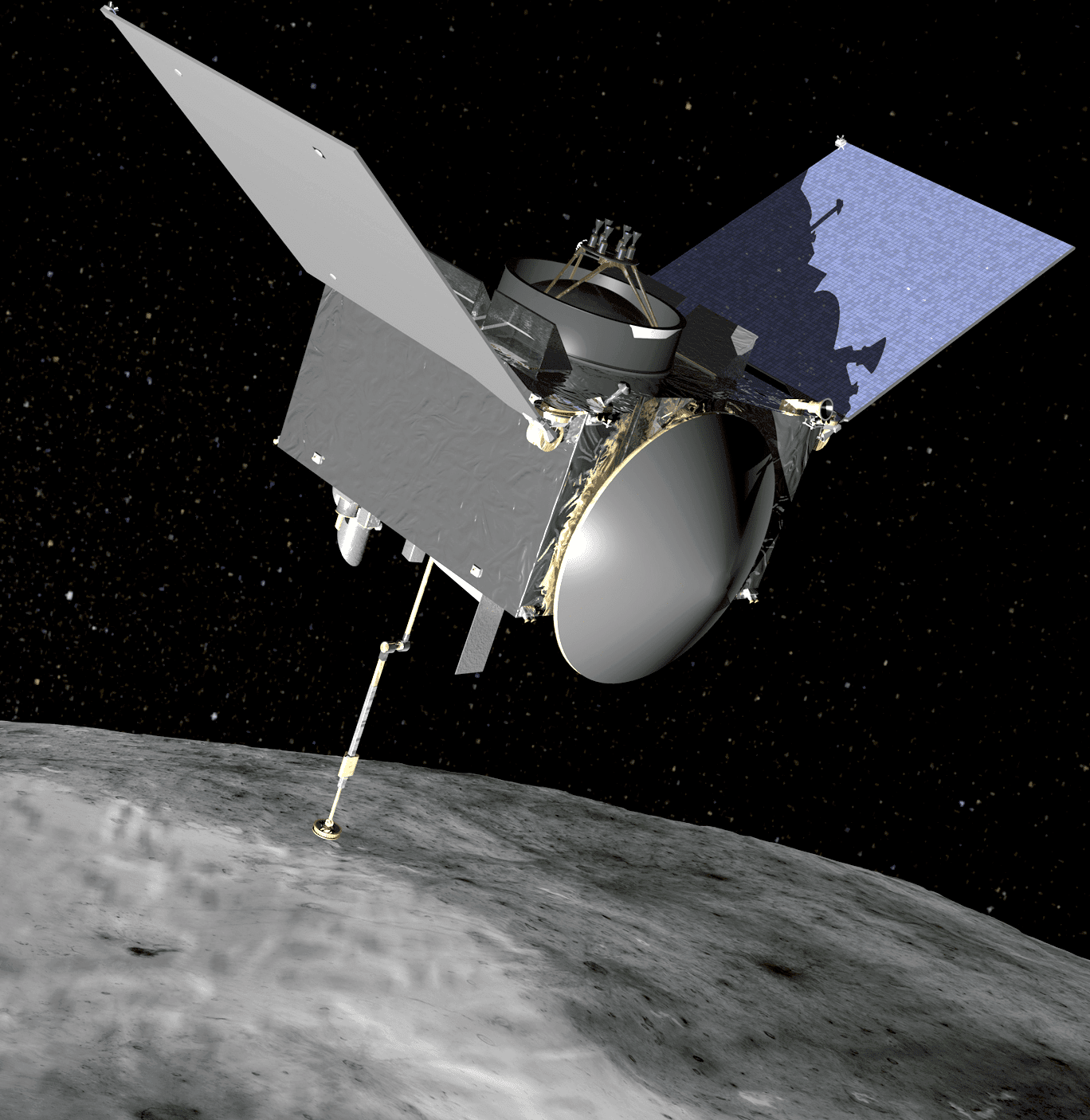NASA Asteroid Mission Leader Is Coming to UCF

Dante Lauretta, the principal investigator for NASA’s OSIRIS-REx mission, will give a public talk at the University of Central Florida on June 2 about the mission that’s working to recover samples of a nearby asteroid.
Lauretta, a professor of planetary science and cosmochemistry at the University of Arizona’s Lunar and Planetary Laboratory, is working with UCF Physics Professor Humberto Campins, on the mission.
OSIRIS-REx, which stands for Origins, Spectral Interpretation, Resource Identification, Security-Regolith Explorer, is NASA’s first mission to return a sample of an asteroid to Earth. A successful mission will provide scientists with enough material from the asteroid’s surface to better understand how planets formed and how life began in the solar system. Data will also help scientists understand the nature of asteroids that could potentially hit Earth.
The free talk begins at 11 a.m. in room 161 of the Physical Sciences Building, located at 4111 Libra Drive on the main campus.
The mission launched aboard an Atlas V 411 rocket in September 2016 from the Kennedy Space Center and is expected to reach the asteroid Bennu in 2018.
That’s when Campins and fellow physics professor Yan Fernandez will really see their workload increase. They will work alongside a team of experts to assist Lauretta by analyzing the data and images taken of Bennu while OSIRIS-REx orbits the asteroid. They then will make a recommendation of the most “promising sample sites” for OSIRIS-REx to collect between two and 70 ounces of surface material with its robotic arm. It will then store the samples in a detachable capsule that is expected to return to Earth in 2023.
 Lauretta said he was excited about the mission and the work the team would complete together.
Lauretta said he was excited about the mission and the work the team would complete together.
“The team has built an amazing spacecraft, and we are well-equipped to investigate Bennu and return with our scientific treasure,” he said.
Campins has spent his entire career chasing asteroids, comets and other celestial bodies. He conducts research at observatories around theworld, including Arizona, Hawaii, Chile, France, Spain and the Vatican. In 2010 he headed the team that discovered water ice and organic molecules on the asteroid 24 Themis and later on 65 Cybele. It’s that expertise that led Lauretta to invite Campins to the OSIRIS-REx team.
Campins earned degrees from the University of Kansas and the University of Arizona. As a graduate student he was named a representative to the Committee for Peaceful Uses of Outer Space of the General Assembly of the United Nations. His research has been funded by multiple agencies in the past 10 years, including NASA, the National Science Foundation, the European Space Agency, Jet Propulsion Laboratory, Smithsonian Astrophysical Observatory and Florida Space Grant Consortium.
“I’ve always been fascinated by asteroids and to be able to contribute to this mission is a milestone in the search for answers I’ve been looking for my entire career,” Campins said.
The University of Arizona leads the OSIRIS-REx mission. Goddard Space Flight Center will provide overall mission management, systems engineering, and safety and mission assurance. Lockheed Martin Space Systems built the spacecraft. A host of national and international experts from several universities in the U.S., Canada, France, Spain, the U.K. and Japan rounds out the team.
To learn more about the event click here.
